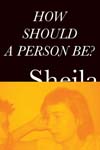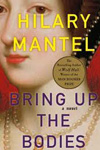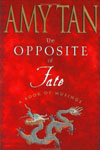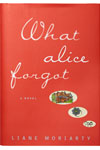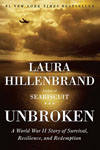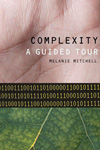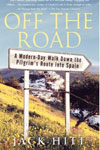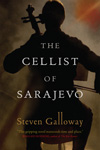“Those who say the novel is dead are simply not paying attention. It glows and it kicks and it thrashes about, very much evolving, very much alive,” says Michigan alum and author Natalie Bakopoulos, a lecturer in the Department of English. Her new title, The Green Shore, is on shelves now. Below, Bakopoulos and other avid readers on campus recommend their favorite books for the rest of summer.
Natalie Bakopoulos
Lecturer, Department of English
One book that has completely taken me off guard is Sheila Heti’s How Should a Person Be? A Novel From Life. While most writers will admit to using varying degrees of real-life experience in their fictional work, Heti unapologetically merges the two, colliding art with life. And what a beautiful collision. By allowing the book to explore the question posed in its title, Heti provides a refreshingly honest exploration of the influence others have on us. She focuses not only on the lasting relationships, but also on the fleeting encounters (both disturbing and startling) and how they might affect the more significant relationships of our lives, the way we define others, and the way we define ourselves. I am mesmerized by this smart, darkly funny, poignant, and raw novel.
Female friendships occupy such a huge part of women’s lives but they rarely are represented in pop culture and art. And though the intense friendship and platonic love between two of its characters, Sheila and Margaux, may seem somewhat familiar to women, it is decidedly less familiar to us as readers and consumers of pop culture. Heti’s novel is on the forefront, along with movies like Bridesmaids and the HBO show Girls, of putting such relationships front and center. And while I can’t yet compare the book to anything else I’ve read, the excitement I feel now is the same I felt when reading Roberto Bolano’s The Savage Detectives or Milan Kundera’s The Unbearable Lightness of Being. There’s a an honesty and energy here that I find thrilling and messy and absolutely full of life, and it makes me excited about the way fiction—and popular culture—might take note.
Also on my “in-progress” bookshelf: This Bright River by Patrick Somerville, Inside by Alix Ohlin, and Birds of a Lesser Paradise by Meghan Mayhew Bergman, which explore all sorts of relationships. I suppose this is one of the main reasons I read: to experience all the beautiful varieties of human interaction. Rounding out the summer: Jess Walter’s Beautiful Ruins and J. Courtney Sullivan’s Maine, whose gorgeous covers alone are evocative of the season.
Mika LaVaque-Manty
Arthur F. Thurnau Professor and Associate Professor of Political Science
I’m reading Hilary Mantel’s Bring Up the Bodies (on my iPad, I should mention). This is the second novel in a planned trilogy about Thomas Cromwell. The series is an embarrassment of riches, given my taste. Mantel has long been one of my favorites, at least among living authors. She is smart, funny, thoughtful, and political without ever banging you over the head, and yet emotionally gripping. And this Cromwell trilogy taps into another one of my favorite types of novel: sprawling—these are loooooong—and complicated, with lots of characters. But unlike the Victorian sprawlers, which I also love, Mantel’s prose and description are tight and crisp.
Cromwell generally gets a bad rap as the bully who helped Henry VIII, among other things, get that principled Thomas More decapitated. It’s all about political strategizing—Karl Rove or David Axelrod each could take a lesson—and the dreaded Mr. Machiavelli’s writings also make an appearance. What is so fabulous about Mantel is that she makes Cromwell not only sympathetic but principled in his strategizing. Now lest you think I’m recommending it because I love reading about politics, I should say I don’t. It’s just that this novel, or the series, really, is very, very good. It makes me wonder what we scholars have to add to the insights of novelists.
Robin Queen
Arthur F. Thurnau Professor, Associate Professor of Germanic Languages and Literature, and Associate Professor of Linguistics
The Bone People by Keri Hulme is one of my all-time favorite books. It focuses on the complicated relationships between three characters, each with a mixed Maori and white New Zealand background, and geography plays an important role as the plot unfolds. The novel shifts perspectives between characters and is lyrical and beautifully written. It’s perfect for the summer because once you start reading it, you don’t want to do anything else. It was the 1985 Booker Prize winner.
The Opposite of Fate: Memories of a Writing Life by Amy Tan delivers great insights into how the author overcame all sorts of challenges to become a writer and how she draws inspiration from small experiences in life. The writing is vivid and easy to connect with, just like much of her fiction. I also love that she was studying for a graduate degree in linguistics when she decided to change direction and become an author. It’s an alternative path I could have imagined as well.
What Alice Forgot by Liane Moriarty is a book about amnesia and a woman’s growing realization that she doesn’t much like the person she’s become or the choices she’s made. Alice believes she is in her late 20s, happily married, and pregnant with her first child when she realizes that a blow to the head has caused her to lose 10 years of her life. Alice actually is in her late 30s, with three children, and in the middle of a nasty divorce. Moriarty keeps the tight plot moving through a bit of mystery and humor while skillfully developing the voices of complex characters.
Thomas S. Porter
Manager, Frankel Commercialization Fund at the Samuel Zell & Robert H. Lurie Institute for Entrepreneurial Studies at the Stephen M. Ross School of Business
Unbroken by Laura Hillenbrand is terrific. (She wrote Seabiscuit.) Unbroken follows the travails of an Olympic track champion when he later joined the military and was shot down over the Pacific. His two years surviving on the ocean and in POW camps should be an inspiration to all entrepreneurs and encourage them to not give up!
Erik Gordon
Clinical Assistant Professor of Business and Adjunct Professor of Law
I’m reading Complexity: A Guided Tour by Melanie Mitchell. Entrepreneurs can profit from peering into complex problems and opportunities and finding creative solutions that have eluded giant companies. Mitchell is a good writer—she worked with Douglas Hofstadter of Godel, Escher, and Bach fame—and she examines complexity across multiple settings. I also recommend Gulliver’s Travels for a not-so-new book. It’s a great beach read because it’s funny as the dickens even if you don’t get the political parody, and it’s all about human nature—the good, the bad, and the ugly.
Nicholas Delbanco
Robert Frost Distinguished University Professor of English Language and Literature
All teachers take pride in their students, and this season is a particularly prideful one for the MFA in Creative Writing. This year one of our recent graduates, Jesmyn Ward, won the National Book Award with her second novel, Salvage the Bones. One of our faculty members (and graduates), Laura Kasischke, won the National Book Critics Circle Award for her collection of poetry, Space, in Chains. Add to that roster—for summer and fall reading—the just-published novels of Natalie Bakopoulos (The Green Shore), Scott Hutchins (A Working Theory of Love, coming soon), Scott Lasser (Say Nice Things About Detroit), and Hanna Pylvainen (We Sinners), and you’ll have a fine time at the beach or in the hammock. All of them are first-rate books and will be a pleasure to read.
Carole McNamara
Senior Curator of Western Art, the University of Michigan Museum of Art
Off the Road by Jack Hitt captures the writer’s reminiscences of walking the Camino de Santiago. The 12th-century medieval pilgrimage is the route to Santiago de Compostela in the northwest corner of Spain where the relics of St. James are buried. Although the road included routes all across Europe that funneled into Spain (Santiago was one of the major pilgrimage destinations in the Middle Ages, along with Rome and Jerusalem), they converge just inside Spain into one road that goes west across the northern part of the country. My husband and I drove the Spanish portion of the pilgrimage and found it to be a very moving experience. Hitt’s chronicle is in turns thoughtful and hilarious as he explores what motivates the modern pilgrim.
One of my favorites is The Cellist of Sarajevo by Steven Galloway. Based on an actual event, Galloway’s novel follows a suite of four characters as they survive the horrors of the Bosnian war and make choices that show how fragile civilization is. It’s a riveting look at what it takes to sustain our values when they come under fire.
Jim Walsh
Arthur F. Thurnau Professor; Gerald and Esther Carey Professor of Business Administration; Professor of Management & Organizations and Strategy
I have been to Africa twice in the past two months, which has influenced my reading choices. First I was in Ghana with a group of mostly undergrads, meeting with business leaders, entrepreneurs, and government officials. We also did some community service work in a local school and came to appreciate something of the history and ecology of the country. We visited the Elmina Castle, a major point of disembarkation for slaves coming out of West Africa. Of course, I had to learn more, so I read Stand the Storm: A History of the Atlantic Slave Trade by Edward Reynolds.
In addition, I recently was in Rwanda leading a workshop for junior faculty. Both trips gave me a personal look at the underside of human nature. I came face to face with the slave trade and genocide. I now am reading Shake Hands with the Devil: The Failure of Humanity in Rwanda by Romeo Dallaire (the Canadian general who tried to lead the United Nations’ effort there). It is a very grim read, but one I feel compelled to digest. We have to bear honest witness to what happened. Meanwhile, I am trying to take stock of “the other side of this other side” of human nature
and reading Steven Pinker’s new book, The Better Angels of our Nature: Why Violence has Declined. Pinker shows us how, notwithstanding events like the Rwandan genocide, humanity is more peaceful today than ever before.

